Month: September 2020
We’re not ready for AI, says the winner of a new $1 Million AI prize
Regina Barzilay (PhD ’03), the first winner of the Squirrel AI Award, talks to MIT Tech Review on why the pandemic should be a wake-up call.
Baishakhi Ray Named VMware Early Career Faculty Award Recipient
Assistant Professor Baishakhi Ray has won a VMware Early Career Faculty Award to develop machine learning tools that will improve software security. The grant program recognizes the next generation of exceptional faculty members. The gift is made to support early-career faculty’s research and promote excellence in teaching.
In today’s world, software controls almost every aspect of our lives. Unfortunately, most software tends to be buggy, often threatening even the most safety- and security-critical software. According to a recent report, 50% of software developers’ valuable time is wasted at finding and fixing bugs, costing the global economy around USD$1.1 trillion in 2016 alone.
“The goal of my research is to address this problem and figure out how to automatically detect and fix bugs to improve software robustness, for both traditional and machine learning-based software,” said Ray, who joined the department in 2018.
In particular, her research will address two main challenges of software robustness: (i) traditional software has numerous implicit and explicit specifications; it is often difficult to know all of them in advance. (ii) With the advent of machine learning-based systems (e.g., self-driving cars), explicitly providing such specifications involving natural inputs, like images and text, is very hard.
Ray’s plan is a two-pronged approach. First, she and her team will build novel machine learning models to learn implicit specifications/rules from traditional programs and leverage these rules to detect and fix bugs automatically. However, such techniques are not easily extendable to machine learning-based systems as they follow different software paradigms (e.g., finite state machine vs. neural network). To improve the robustness of such systems, they will also devise new analysis techniques to examine the internal states of the models for potential violations.
“A successful outcome of this project will produce new techniques to detect and remediate software errors and vulnerabilities with increased accuracy to make software more secure,” said Ray.
WiCS’ Plans For The Year
Womxn in Computer Science (WiCS) President Rediet Bekele (CC ’21) talks about the organization’s plans to help members and its new initiatives for the year. She takes a positive look at the move to virtual classes and online events and sees it as an opportunity to reach even more people and help members navigate this school year.
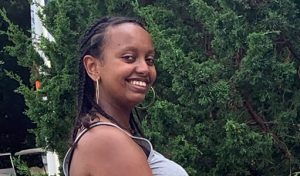
Below, Bekele reflects on the changes this year and how WiCS will help build a sense of community for its members.
How do you see the year unfolding for WiCS?
We are already in the works for Fall events that will allow our members to participate virtually. We started holding General Body meetings over the summer and it will continue virtually into the academic year. We are hoping that through these meetings we can instill the feeling of community that is currently much needed.
We plan to grow the number of members that join our club by onboarding early. WiCS’ community chairs are going to be working closely with incoming first-year students to create a channel with WiCS. They want students to use this channel to help navigate on-campus and virtual resources. Workshops on how to communicate with TAs and professors and lightning talks about research projects on campus are just some of the events we are organizing to help students understand course-related and research opportunities that are made available to them.
What do you hope to achieve this year as president?
As an international student myself, I want to work on more initiatives that will help international students navigate the CS community at Columbia and use the resources available to them to succeed in the field. This will include organizing professional development opportunities, workshops on understanding work authorization, and making the most out of health and course-related resources on campus.
Within the club, I hope to make the transition to the coming academic year as smooth as possible on everyone on the board. We are anticipating the majority of our correspondence to be remote this coming year so I want to make sure that effective virtual communications still occur and that we are able to continue working with all of our members. It will definitely be a learning curve for all of us as the virtual format is truly a unique situation, but WICS’ amazing board members and general body are sure to make it an effortless transition.
How about the yearly events and activities that WiCs hosts, will any of those push through?
Definitely! Just as we have done in previous years, we are sponsoring students attending the Grace Hopper Conference. This year, WiCS is a bronze level academic sponsor for the conference and we are incredibly excited to be sponsoring 30 women to attend the virtual conference in October!
DivHacks is also virtually taking place this fall from October 23 -25. Our diversity chairs have been working hard to make the fifth annual DivHacks hackathon the best one to date. The theme for this year’s hackathon is Encoding Justice. We encourage everyone to check out the DivHacks website and register for the event.
We also have numerous events coming up with our general body members such as virtual professor lunches, mock interview sessions to help our students during the recruitment season, and 1:1 coffee chats with engineers from our sponsor companies.
We can’t wait for students to take part in all of our events!
How can students reach out to WiCS and find out more about your programs?
A great way to keep up with our events is to subscribe to our weekly newsletter. Students can subscribe through the link on our website. They can also reach out to us on our Facebook page and Instagram channel.
Is there anything else you think people should know?
In light of current issues, from a pandemic that has closed the doors of our campus to heightened tension and protests against racial inequality, it is easy to feel overwhelmed, stressed, furious, and confused. We want to let everyone know that WiCS is here to serve not only the CS community but the entire Columbia and Barnard student community. We want to keep open lines of communications so that anyone can reach out to us and we would be happy to listen, provide resources, or support.
Rocco Servedio Wins 2020 Great Teacher Award
The Society of Columbia Graduates’ Board of Directors has selected Rocco Servedio as one of the honorees for its 2020 Great Teacher Award.
18 CS Students Win Prestigious Fellowships
Graduate students from the department have been selected to receive scholarships. The diverse group is a mix of those new to Columbia and students who have received fellowships for the year.
J.P. Morgan 2019 AI Research PhD Fellowship Awards
The inaugural award supports researchers who have the skills and imagination to potentially transform the way we live and work.
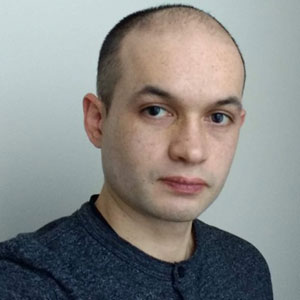 Juan D. Correa
Juan D. Correa
Juan D. Correa‘s work focuses on the theoretical and logical foundations of causal inference. Correa is a second-year PhD student who works with associate professor Elias Bareinboim in the Causal Artificial Intelligence Lab.
In 2019, he received a Best Paper Award at the 35th Conference on Uncertainty in Artificial Intelligence and an Outstanding Paper Award Honorable Mention at the 32nd AAAI Conference on Artificial Intelligence (2018). He graduated in 2017 with an MSc in Computer Science from Purdue University and a bachelor’s degree in Computer Engineering from Universidad Autónoma de Manizales in Colombia in 2011.
NSF Graduate Research Fellowship Program (GRFP)
The GRFP is a five-year fellowship that recognizes and supports outstanding graduate students in NSF-supported STEM disciplines who are pursuing research-based master’s and doctoral degrees.
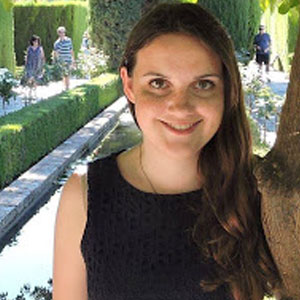 Emily Allaway
Emily Allaway
Emily Allaway is interested in implied semantics. In particular, she is interested in understanding stance and other types of meaning that are expressed but not explicitly stated in text. She is a third-year PhD student in the Natural Language Processing group under professor Kathy McKeown.
Allaway graduated from the University of Washington where she earned a BS in mathematics, a BS in computer science, and a minor in Ancient Greek.
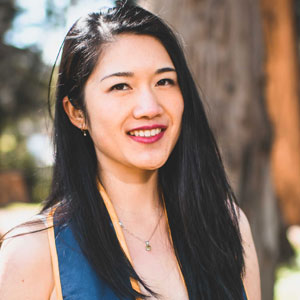 Vivian Liu
Vivian Liu
Vivian Liu’s research interests are in human-computer interaction (co-creating with AI), immersive technologies, and accessibility. She is a first-year PhD student set to work with assistant professor Lydia Chilton.
Liu graduated with general distinction from UC Berkeley in 2019 where she earned a B.A. in Computer Science, a B.A. in Cognitive Science, and a Certificate in New Media.
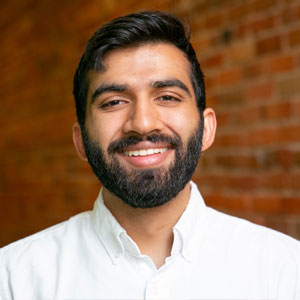 Sachit Menon
Sachit Menon
Sachit Menon’s research interests lie in machine learning and computer vision. He is especially interested in allowing computers to learn with less human supervision, as well as enabling them to generalize past the specific data they’ve seen (for example, by reasoning about uncertainty or causality). Menon is a first-year PhD student who will be advised by assistant professor Carl Vondrick. His graduate studies are supported by the NSF Graduate Research Fellowship and the Columbia Presidential Fellowship.
This year he graduated from Duke University with a BS in Mathematics and Computer Science with Highest Distinction. Menon’s undergraduate studies were supported by an Angier B. Duke fellowship (Duke’s flagship merit scholarship) and a Goldwater Scholarship (the most prestigious undergraduate scholarship in scientific fields).
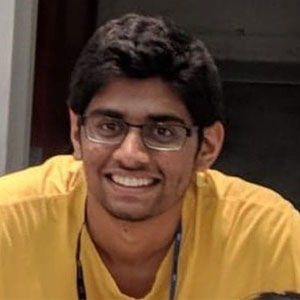 Shyamal Patel
Shyamal Patel
Shyamal Patel is a first-year PhD student interested in combinatorics and theoretical computer science. He will be joining the Theory group and will be supervised by associate professor Xi Chen and professor Clifford Stein.
Patel graduated from Georgia Tech in 2020 with a degree in computer science.
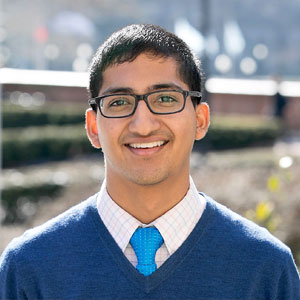 Abhishek Shah
Abhishek Shah
Abhishek Shah‘s research uses deep learning and optimization techniques to improve software security. He is a second-year PhD student co-advised by professor Simha Sethumadhavan and assistant professor Suman Jana.
Shah graduated in 2019 from Columbia University with a degree in computer science.
Qualcomm Innovation Fellowship (QInF)
The QInF is focused on recognizing, rewarding, and mentoring innovative PhD students across a broad range of technical research areas. The highly competitive program is open to PhD students in the Electrical Engineering and Computer Science departments from the top 24 US-based and Canadian schools. Only 13 two-member teams were awarded funding, out of 188 applications this year.
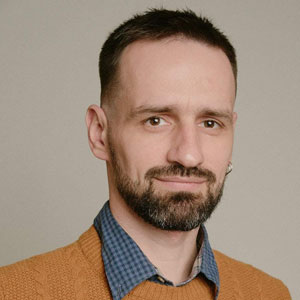 Evgeny Manzhosov
Evgeny Manzhosov
Evgeny Manzhosov is a second-year PhD student who works with professor Simha Sethumadhavan to develop secure and reliable systems. Prior to Columbia, he worked as Physical Design Engineer at Intel (2011-13), Apple (2013-16), and Cisco (2016-17).
Evgeny has BSc in Electrical Engineering and BSc in Physics from Technion – Israel Institute of Technology (2015) and completed an MSc in Electrical Engineering at Columbia University with an Award of Excellence (2019).
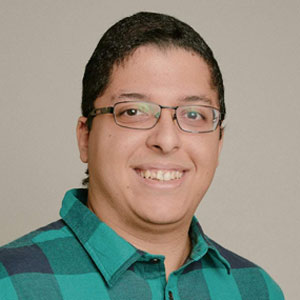 Mohamed Tarek
Mohamed Tarek
Mohamed Tarek’s research interests include systems security, microarchitecture design. and hardware support of security. He is a fourth-year PhD candidate under the guidance of professor Simha Sethumadhavan. His work on fine-grained memory safety, Califorms, is recognized with an IEEE Micro Top Picks Honorable Mention 2019.
Tarek received a B.Sc. and M.Sc. degrees in computer engineering at Ain Shams University, Egypt in 2014 and 2017, respectively. During his M.Sc. studies, he worked on using homomorphic encryption for secure data computations.
Cheung-Kong Innovation Doctoral Fellowship
The scholarship is set up to support doctoral studies at SEAS as part of the collaboration between Columbia Engineering (SEAS) and Cheung-Kong Graduate School of Business (CKGSB).
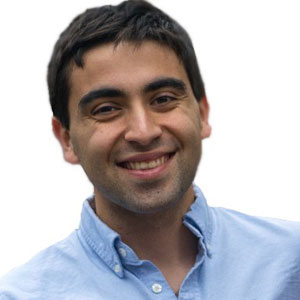 Keyon Vafa
Keyon Vafa
Fourth-year PhD student Keyon Vafa’s research focuses on probabilistic machine learning, where he works on applying probabilistic methods to deep learning with professor David Blei. He is especially excited by applications to text and the social sciences.
In 2016, Vafa was awarded an NSF GRFP fellowship and spent a year as a PhD student in the statistics department before transferring to the computer science department. He graduated from Harvard University magna cum laude with a bachelor’s in computer science and statistics in 2016.
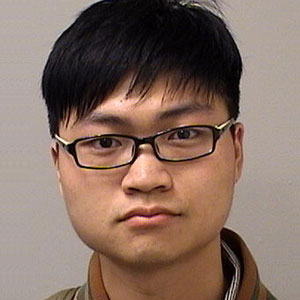 Chang Xiao
Chang Xiao
Chang Xiao is a fifth-year PhD student in the computer science department who works with associate professor Changxi Zheng. His research focuses on building human-computer interaction systems using computational methods and machine learning. He has developed methods in a range of applications and his research has attracted public interest, including media coverage from CNN, IEEE Spectrum, etc.
Chang received a BS degree in computer science from Zhejiang University in 2016 and is a recipient of the Snap Fellowship and a SEAS fellowship in 2019.
Dean’s Fellowship
The scholarship is a highly-selective fellowship offered to a small number of admitted students.
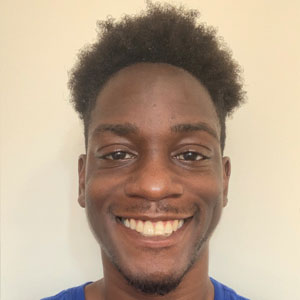 Kahlil Dozier
Kahlil Dozier
Kahlil Dozier’s research focus is networked systems with a particular interest in systems building and formal analysis. He is a first-year PhD student who will work with professors Vishal Misra and Dan Rubenstein.
Dozier has two degrees from MIT – a BS Electrical Engineering (2012) and an M.Eng Electrical Engineering (2014). He also earned an MS in computer science from the University of Southern California (USC) in 2020.
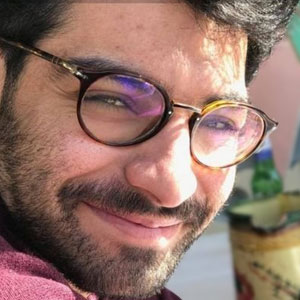 Loqman Salamatian
Loqman Salamatian
Loqman Salamatian is a first-year PhD student with the Networking group under the guidance of Ethan Katz-Bassett, Vishal Misra, and Dan Rubinstein. His main interests are in internet measurement, complex systems analysis, and information geometry. He will be working on finding new models to measure and understand the interactions between virtual and geographical space.
Salamatian is a mathematics graduate from Luxembourg University and has studied in France, Hong Kong, and Australia.
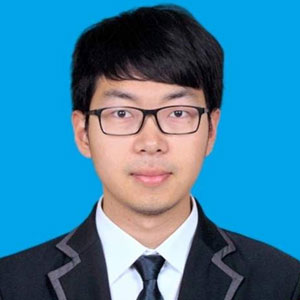 Rundi Wu
Rundi Wu
Rundi Wu is a first-year PhD student advised by Prof. Changxi Zheng. His research interests lie in computer graphics, computer vision, and deep learning, with a special focus on learning-based 3D shape modeling.
He was part of the Turing class at Peking University and graduated in 2020 with a bachelor’s degree in computer science.
Greenwoods Fellowship
The Columbia School of Engineering and Applied Sciences recognizes and supports Ph.D. students reflecting their academic achievements and clear potential for future success.
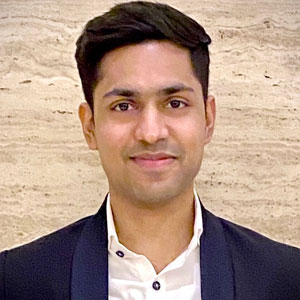 Gaurav Jain
Gaurav Jain
A first-year PhD student, Gaurav Jain works with assistant professor Brian A. Smith on human-computer interaction and computer vision applications at the Computer-Enabled Abilities Laboratory (CEAL). His goal is to build interactive systems for people with disabilities (especially blind and visually impaired people) to better experience the world around them.
Gaurav received a bachelor’s degree in computer science from Delhi Technological University in 2020 and is a recipient of the Indian Academy of Sciences’ Summer Research Fellowship in 2019.
SEAS Fellowships
The Columbia School of Engineering and Applied Sciences established the Presidential and SEAS fellowships to recruit outstanding students from around the world to pursue graduate studies at the school.
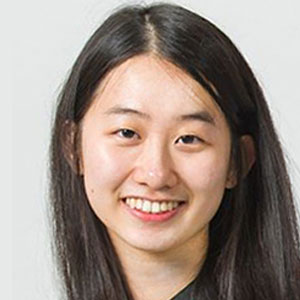 Run Chen
Run Chen
Run Chen is a first-year PhD student working with the Spoken Language Processing Group led by professor Julia Hirschberg. Her research interest lies in natural language processing and computational linguistics. She earned a silver medal from the International Linguistics Olympiad.
Chen graduated from MIT with a BS in computer science and linguistics in 2019, and an MEng in computer science in 2020.
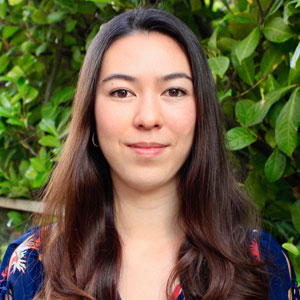 Miranda Christ
Miranda Christ
Miranda Christ is a first-year PhD student who is broadly interested in cryptography, complexity, and algorithms. She will join the theory group and will be co-advised by professors Tal Malkin and Mihalis Yannakakis.
Christ is also a Fulbright Scholar. She graduated magna cum laude from Brown University in 2020 with an Sc.B. in Mathematics-Computer Science.
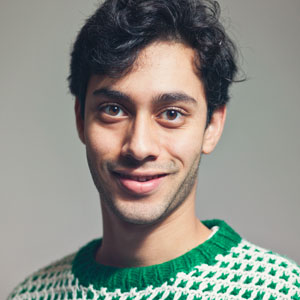 Samir Gadre
Samir Gadre
Samir Gadre‘s research interests include computer vision, robotics, interactive perception, lifelong learning, and machine learning. He is a first-year PhD student advised by assistant professor Shuran Song. While at Columbia his research will focus on object understanding, specifically on learning representations for everyday objects that are useful for downstream computer vision and robotics tasks.
Gadre graduated from Brown University with an Sc.B. Computer Science in 2018. For the past two years, he has worked as a Software Engineer at Microsoft HoloLens.
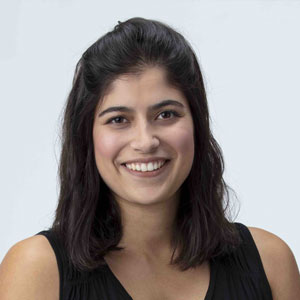 Melanie Subbiah
Melanie Subbiah
Melanie Subbiah plans to explore the different areas of Natural Language Processing (NLP) for the first year of her PhD. Subbiah will work with professor Kathy McKeown and she is interested in long-form controllable text generation, self-supervised learning, and neural networks.
In 2017, she completed a Bachelor’s in Arts and Sciences in Computer Science from Williams College.

